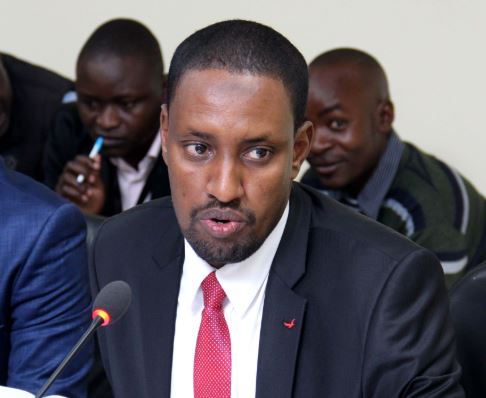
Former Nairobi executive Mohamed Dagane has said the electoral agency must be structured in the simplest way as part of enhancing public trust.
Dagane said the Independent Electoral and Boundaries Commission must communicate efficiently and robustly with all stakeholders in the sector and provide timely updates to the public on the processes and activities to keep people updated on the progress of the electoral body.
Dagane spoke when he appeared before the IEBC selection panel led by chairman Nelson Makanda.
He said his background in communications, if successful, will go a long way in engaging the public through various channels and educating them on what they are expected to do.
This is in addition to reaching out to the widest audiences possible on best practices for the commission.
“We have to be open with all stakeholders to be able to steer IEBC and achieve its mandate. We must be able to communicate robustly with the public, make sure they are informed about their rights and how they are supposed to engage… It is important to keep IEBC simple,” he told the panel.
During his five-year tenure in Nairobi county, which is a dynamic set up, Dagane said there is high level of engagement with the county assembly members, contractors and civil society among others, each with various interests.
But while working in a high voltage environment as the county or IEBC, he said the most important aspect is to follow the laws and guiding principles and with that, he withstood pressure and resisted interests to avoid being swayed in people’s favour.
“You will find people approaching you to serve them in their interests and various ways, so I have been straightforward in working with them, also telling them that they need to work within the laws. My work was basically to do with strategy formulation, and I was able to stand on my feet and say no,” he said.
Another candidate, Melisa Ng’ania told the panel that, much as a person cannot control what others think, it is critical to discharge duties in the right way even in situations of pressure from different quarters to influence decisions.
Ng’ania, who is an advocate and a board member of Financial Inclusion and Micro-Cap Holdings Limited, respectively, insisted that impartiality is one of her key drivers and will continue observing should she qualify to serve in IEBC.
“I have been tested. Someone who will make me do what is not right does not like me. People who want you to succeed will support and encourage you. I could be fired today, but tomorrow, someone sees the good in me,” she told the panel.
She said some of the ways that voters can be disenfranchised include instances where voters do not have critical documents, like national identity cards to register as voters, failure to have the electoral body ensure its activities and processes run as per schedule and also failure to have adequate points for the public to register as voters.
Ngania also said IEBC must deal with voter apathy, especially among the youth.
“I have had to work with the youth, and it is important to have tailor-made messages, know your audiences,” she said.
Mary Njeri Mburu, who currently serves as a non-executive director at the Family Bank Limited, said rigorous technology checks must be conducted well in advance, as part of having a maximum confidence level on results’ delivery.
She also said an independent audit of the technology should be conducted, to give assurances that it works, noting that Kenyans must believe in IEBC and, subsequently, the results.
“We want to give Kenyans credibility of the IEBC so that they can believe in the results transmitted. They will know technology was well audited from the beginning,” Njeri told the panel
Njeri, who has worked in Haiti, Afghanistan and Liberia said she is up to the task and has witnessed what absence of democracy means for a country.
“I want this job because it is not tougher than Afghanistan, Haiti or Liberia. I applied for this job because I have seen with my eyes what a country without democracy, where the rule of law does not work, can get. We must make IEBC credible, consult and convince Kenyans that we will deliver credible results,” she said.
At least 45 candidates are expected to face the IEBC panel in the next two weeks, with the process of reconstitution now at midway.
As at last Friday, 74 candidates had been interviewed – 11 for the position of chairperson and 63 others for the role of the commissioners, with three of those shortlisted for member’s role withdrawing their applications, citing personal reasons.
The nine-member panel commenced interviews on March 27 and is expected to complete the process by April 25.
Following the interviews, the panel will submit a list of two nominees for chairperson and nine nominees for member positions to the President, who will then appoint one chairperson and six members to the commission.












